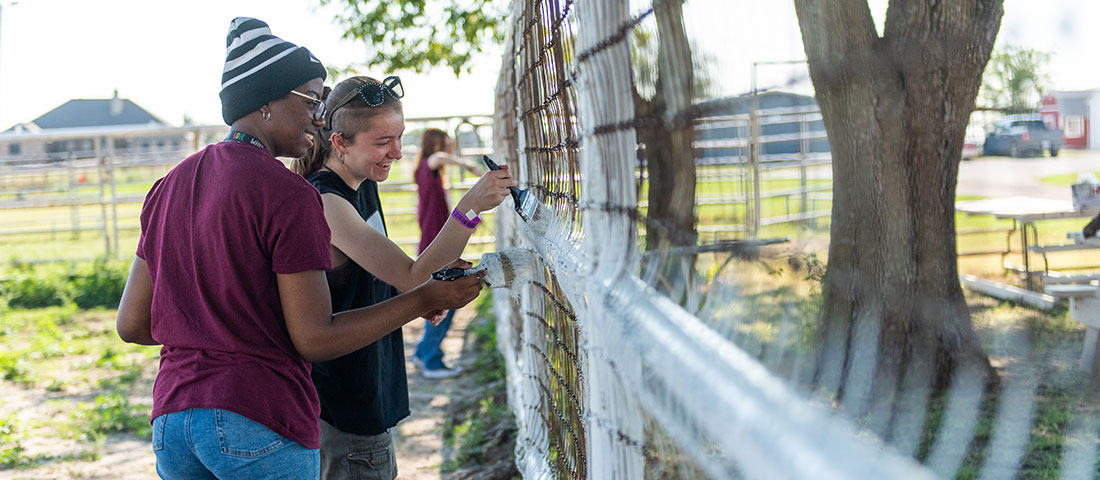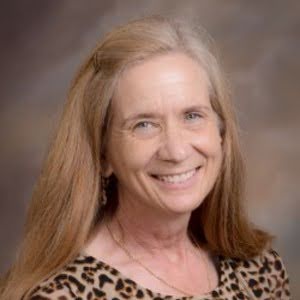Social Impact
Amplify the social impact aspects of our mission and brand

Mission & Vision
Our Vision
Our Mission
Success Measures
Milestone 1 Develop and implement comprehensive social impact initiatives. (Strategies 1-3)
Measures:
- Create a task force/committee to identify key areas, set goals, and implement strategies.
- Establish measurable targets for social impact programs annually.
- Monitor operational efficiency.
Milestone 2 Increase representation and inclusion of marginalized voices in decision-making processes and foster inclusivity and belonging. (Strategy 1)
Measures:
- Assess current representation in leadership and set improvement targets.
- Conduct regular climate surveys for students, faculty, and staff.
Milestone 3 Identify strategic community organizations and stakeholders for collaborations that benefits both the institution and the outward community. (Strategy 3)
Measures:
- Evaluate the effectiveness of partnerships (joint projects, research impact) and the impact of our work on the external community (e.g., Quakertown).
- Foster open conversations through forums, focus groups, town halls, etc.
- Gather input from external stakeholders using quantitative and qualitative measures.
Milestone 4 Enhance educational programs to address societal challenges. (Strategies 2-3)
Measures:
- Monitor new courses on social justice, diversity, and sustainability.
- Track student and faculty, and community engagement in social impact initiatives.
Milestone 5 Promote research and knowledge dissemination on social impact topics. (Strategy 2)
Measures:
- Track grants and funding for social impact research.
- Monitor research publications/ presentations and media engagements.
Milestone 6 Recruit and retain diverse staff, students, and faculty. (Strategy 1)
Measures:
- Track promotion and tenure rates for faculty.
- Share success stories on social media platforms.
- Implement responsive programming based on needs assessment.
- Reward TWU members for social impact work.
Milestone 7 Monitor, report and, when needed, repair social impact initiatives. (Strategies 2-3)
Measures:
- Develop a system to evaluate the outcomes of social impact programs.
- Publish annual reports on social impact achievements.
- Create a GANTT chart to show expected outcomes.
- Build an integrated model for mapping theory to action.
- Collect time-series data during implementation.
- Maintain a repository of work related to social impact initiatives.
By setting clear objectives and regularly evaluating progress through these milestones and measures, Texas Woman's University can actively work towards creating a positive, socially responsible impact that contributes to a more just and sustainable society. See the complete list of strategies and success measures.
The Team
-
Ashton Middleton Brown - Co-Lead
Assistant Athletic Director, Compliance and Academic Services -
Gabrielle P .A. Smith, PhD - Co-Lead
Associate Professor of Psychology, College of Arts and Sciences -
Bhana Sharadha Nathan, MBBS, MHSc
Adjunct Faculty, Schools of Sciences, Biology -
Suzi Rumohr, MLS
Sciences Librarian -
Jyutika Mehta, PhD, CCC-SLP, F-ASNR, F-ASHA
Director, Mike A. Myers Stroke Center -
Christine Torres, MLA
Assistant Director, PCSE Houston -
Francila Brito Silva, PhD, CHWC
Assistant Director, Health and Wellbeing Initiative, Student Life
Our Commitment
Texas Woman’s University envisions a transformative approach to social impact. We are committed to mitigating injustice by educating, supporting, and empowering women and marginalized voices. Our goals are:
“...Proactively supporting, affirming, exhibiting, and leveraging our institution’s ability to transform lives.”
“Amplification of education, research, and knowledge for a better, more sustainable society.”
Goals
Goal 1: Prioritize the productivity and well-being of our workforce and students to promote retention.
Goal 2: Foster diverse and creative community partnerships to cultivate a spirit of civility and neighborliness.
Goal 3: Improve internal and external communication methods by discussing social impact examples across the institution.
Examples of the Work Being Done
Success Coaching
Success coaching for first-generation students is centered on supporting and guiding them to realize their academic aspirations while maintaining a healthy balance between their studies and personal lives. The approach prioritizes each student's unique development, fostering self-discovery, critical thinking, and decision-making skills to empower them as they strive for success.
Ramp Building
Led by Ronald S. Palomares-Fernadez, Ph.D., the School Psychology program is making significant strides in social impact through its ongoing ramp-building project. This initiative sees our students, faculty, and local volunteers collaborate to construct ramps for buildings and homes that lack adequate access for individuals with mobility challenges. By actively addressing these accessibility issues, our program is improving physical access and promoting inclusivity and independence within our community. (rpalomares@twu.edu).
Thought Leadership & TWU’s QEP

Jyutika Mehta, PhD, CCC-SLP, F-ASNR
Director, Mike A. Myers Stroke CenterDr. Jyutika Mehta is the Director of TWU’s Stroke Center in Dallas. In this episode of the podcast Educational Diagnosticians, she discusses a study that uses imitation therapy to help nonverbal children learn to speak.

Dr. Tina Fletcher, EdD, MFA, OTR
Professor Emerita, Dallas CenterDr. Tina Fletcher’s (Occupational Therapy) research focuses on fostering partnerships between occupational therapists and community venues to create evidence-based experiences for people with sensory differences.
TWU students and faculty are using their expertise in the public sphere! To see more articles, op-eds, and interviews that are putting us on the media map, check out the Women’s Thought Leadership website and TWU's People in the News.
OT Graduate Capstone Projects
Doctoral students in OT are required to complete capstone research projects in collaboration with a nonprofit for the purpose of social impact. In seeing the poster presentations, there are many outstanding examples that could be featured both on the Denton and Houston campuses. Two OT students, one from Denton and one from Houston, partnered with the Health and Wellbeing Initiative to provide training and resources to faculty, staff, and students around work ergonomics.
Contact person: Supriya Sen, Associate Clinical Professor for OT Houston ssen1@twu.edu
Alexandra Mack
Nutrition student turns capstone project into cookbook based on ingredients in Minerva’s Market. This is after she learned more about food insecurity at TWU through research done by faculty from the HWI Eat Well committee and Dr. Brito Silva.
